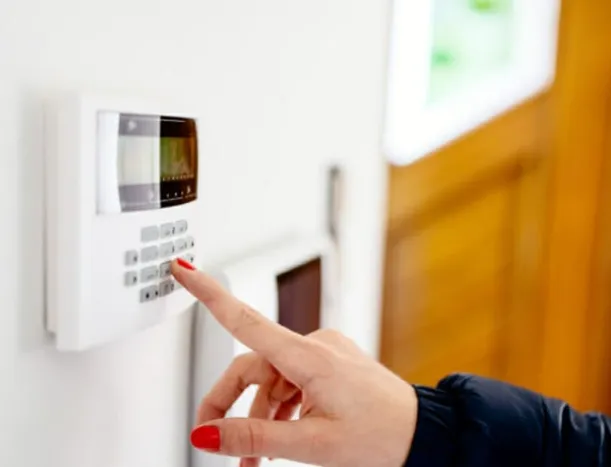Looking for ways to cut down on your homeowners insurance bill? One option many people discover is an alarm system discount. Insurers often lower premiums if you have security or fire detection systems in place, since those devices reduce the chance of theft, fire, or costly damage. But here’s the catch: not every system qualifies.
Understanding Alarm Credits
Alarm credits are essentially discounts applied to your homeowners insurance when you install protective systems that reduce risks to your home. Insurers usually separate them into two main categories:
- Security system credit: for burglar alarms that detect and report unauthorized entry.
- Fire or sprinkler credit: for smoke detectors, heat sensors, or sprinkler systems that respond to fire hazards.
However, simply installing an alarm isn’t enough. The type of system and how it’s monitored make a big difference.
Is Professional Monitoring Required?
In most cases, yes. To qualify for insurance savings, the system needs to be professionally monitored. That means:
- It must be installed by a qualified technician.
- The system must be active and fully operational.
- Alerts go directly to a central monitoring station.
- Police, fire, or emergency services are automatically contacted when an alarm is triggered.
If your setup is self-monitored—like many DIY options that just send alerts to your phone—it won’t earn the insurance discount.
Why DIY Monitoring Doesn’t Qualify
Devices like Ring or Nest have made home security more affordable and convenient, but they depend on the homeowner to act. If you’re asleep, out of service range, or traveling, an alert might go unnoticed.
With professional monitoring, a central station operator is notified right away and can dispatch emergency services even if you miss the alert. From an insurer’s perspective, that reliability lowers risk, which is why monitored systems meet the standard for discounts while self-monitored ones don’t.
Why Insurers Reward Monitored Systems
Insurance pricing is all about risk. The less likely you are to experience a large loss, the more affordable your premiums can be. Professionally monitored systems provide clear benefits:
- For security: Quick police notification can deter intruders or limit property loss.
- For fire: Immediate alerts reduce the time it takes for emergency crews to respond, potentially saving your home from severe damage.
- For insurers: The system provides proof that alarms are noticed and acted on, lowering claims risk.
Because these systems create measurable results, insurers are willing to pass along savings in the form of alarm credits.
Proving Your Eligibility
If you’re aiming for an alarm credit, you’ll need documentation that your system is both installed and actively monitored. Acceptable proof usually includes:
- An installation certificate from the alarm company.
- A monitoring contract or subscription agreement.
The paperwork should clearly state your name, property address, the company providing monitoring, and whether it’s for burglary, fire, or both. Without this documentation, your insurer may delay or deny the discount.
Tips Before Installing a System
If you’re considering getting an alarm system specifically to qualify for insurance savings, keep these points in mind:
- Verify central monitoring: Not all providers offer 24/7 monitored service. Ask if they provide certificates for insurance purposes.
- Check local requirements: Fire alarms and sprinkler systems may need to meet Florida building codes or specific certifications.
- Get paperwork upfront: Request installation and monitoring documentation immediately after setup so you can easily submit it to your insurer.
The Bottom Line
Alarm system credits are a valuable way to save money on homeowners insurance, but only if your system is professionally monitored. DIY devices may give you peace of mind, but insurers want the added reliability of central monitoring before offering a discount. If you’re planning an upgrade, make sure your system meets the standards so you can enjoy both stronger protection and lower premiums.










